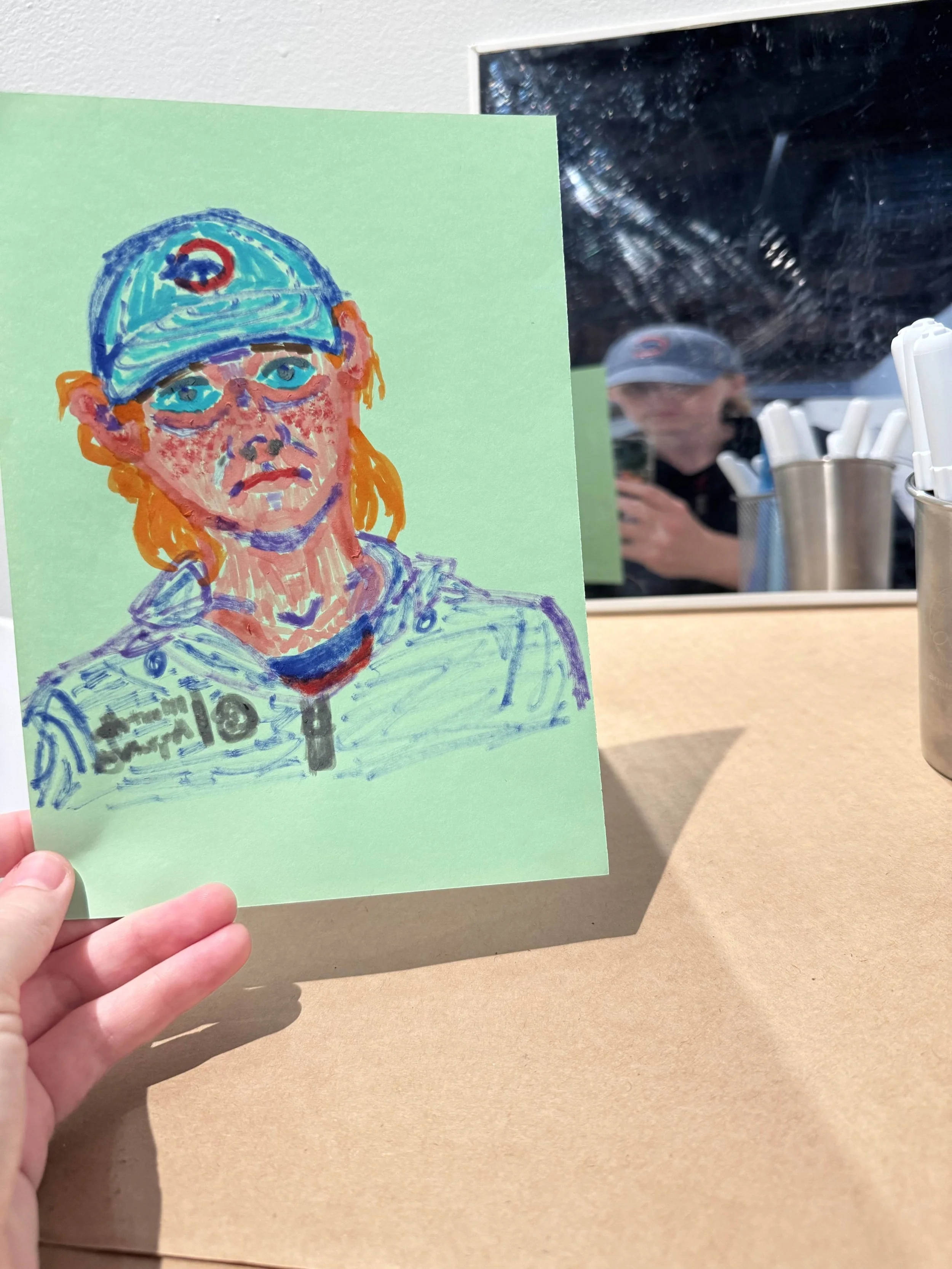2025 Heartwood Poetry Prize
Judged by 2024 Winner Bleah Patterson
winner: Elizabeth Rae Bullmer
Body as Superstition
A woman with a widow’s peak will outlive her husband;
moles mark the unfaithful, but if freckled, she is loved by God.
Cutting your own hair tempts fate, never risk it at the waning moon;
sudden baldness forbodes the death of a nearby child.
Itchy lips will soon be kissed, and a bitten tongue
has recently lied. A wide tooth-gap marks the lucky in life,
though beware yellow specks in the fingernails,
never clip them on the Sabbath or other holy days.
Take care whose eyes you meet upon a full moon.
Never marry a flat-footed man, nor one with a thin nose,
nor twitchy chin. Sneezing opens the door to demons
and a shiver notes footsteps over your eventual grave.
If you want to live forever, walk barefoot and backwards
to bed every night, sing lullabies to the southernmost star
and offer your blood, one drop pricked from crooked pinky
into a freshwater stream each rose-gold dawn.
Elizabeth Rae Bullmer
started writing at seven-years-old. Drawing on life experience and trauma recovery, the work harnesses the healing power of poetry, exploring memory, how it shapes our definition of truth and seeks to tell stories that reflect a collective understanding of our humanity. This poem explores the physio-mythic: what it is to live in a body defined by human story. Bullmer is the author of two chapbooks, most recently, Skipping Stones on the River Styx, with work also appearing in MacQueen’s Quinterly, Cloudbank, Sky Island Journal, Anacapa Review and The Awakenings Review. Bullmer is a licensed massage/sound therapist, facilitates writing/healing workshops, serves on two community poetry boards and is the mother of two phenomenal humans, living with three fantastic felines in Kalamazoo, MI.
1st runner up: Rachel Desiree Felix
Graves I Still Tend
I buried the hunger in Kuala Lumpur—
the girl who licked gold from department store glass,
counted handbags like rosary loops,
dreamed of high-rise windows and
the right kind of light to be seen in.
I left her somewhere near the Jalan Bukit Bintang exit,
heels aching, mouth full of someone else’s perfume.
In Seoul, I buried my tongue.
The part of me that could argue in paragraphs,
slice through rooms with metaphors,
command silence with a single, well-placed word.
Here, I learned to bow before speaking.
To let a sigh stand in for a sentence.
To swallow the urge to be understood.
But my writing—
that, I kept.
Pressed between diary pages,
like mugunghwa petals in an old prayer book.
It moved with me,
across oceans, through customs,
tucked into Google Docs and email drafts,
rising at midnight,
when the house no longer watched.
I did not keep the noise.
I did not keep the show.
I let ambition rust in the rain
outside a city that never slowed down.
But I kept the salt of both seas.
The orchids that bloomed in my grandmother’s garden.
The pine needles that stuck to my winter boots.
I kept the ache—
the way it curled, vine-like, around my ribs.
Some days,
I visit the things I buried—
lay flowers at their shallow graves.
Not to dig them up,
but to remember the weight
they once asked me to carry.
There is grief in letting go,
even of the things that nearly drowned you.
But there is grace, too,
in walking away
without needing to be seen.
Rachel Desiree Felix
is a Malaysian writer based in South Korea. Her poetry explores cross-cultural womanhood, memory, and the quiet rituals of survival and care. She writes from the in-between—where language, identity, and tenderness are constantly redefined. Her work often draws from the emotional landscapes of Malaysia and Korea, weaving themes of silence, belonging, and self-reclamation.
2nd runner up: Alexandra Bergmann
I ask the Moon where it’s been
I ask the Moon, “how’s the weather,” even though it has no weather. I ask how it
got so small. I ask if it smells like cheese and take a whiff. I ask it to please come
to my birthday party, that’s my greatest wish. I ask if its make-up is partly Jupiter-
inspired. I ask what transpired when the Earth was young. I ask if gallery life is
fun, if ceramic is all it’s cracked up to be. I tell the Moon, if it were up to me, I
would take it road tripping and we could see the World’s Largest Balls courtesy
of Eisenhower’s interstate. I ask the Moon if it would like to change and what it’s
like not to.
Alexandra Bergmann
is a writer, educator, and scientist from the San Francisco Bay Area. They're also an avid runner, baker, and birder. Her poetry has appeared in The Madison Review, SEISMA Magazine, Tendon, and elsewhere.


